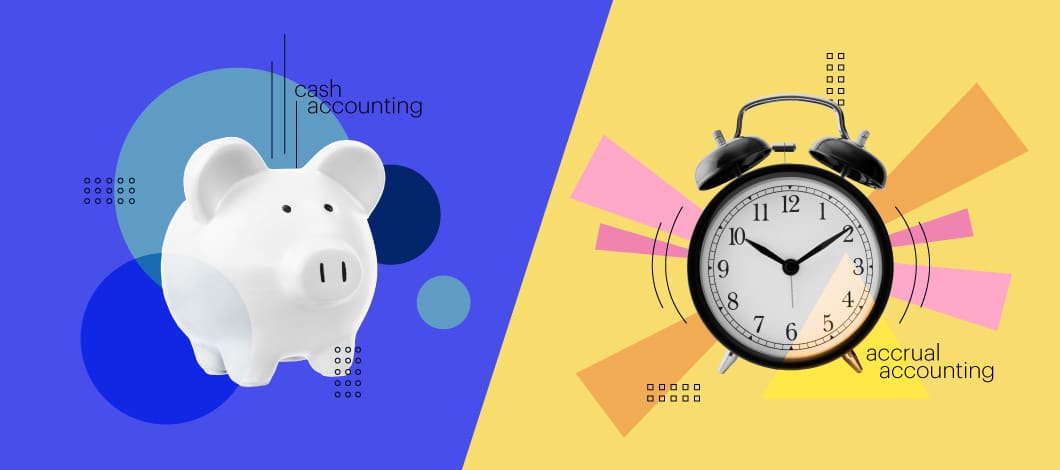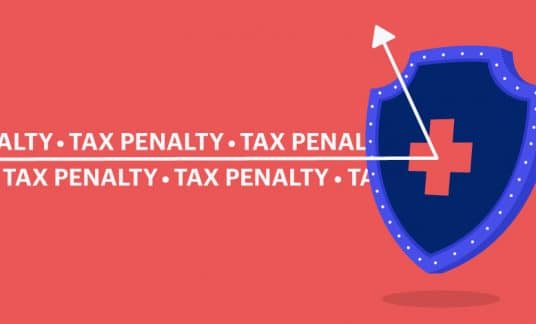When you start your business, you have to make a decision about how you are going to record your income and expenses. You have 2 choices: cash vs. accrual accounting.
The basic difference between the cash method vs. accrual method is with the timing of the recording of transactions for revenues and expenses.
Your choice between the cash vs accrual accounting method will have a significant effect on your tax returns and your bottom-line profits. How do they impact taxes and profits? Which one gives you the best information to manage your business?
Let’s look at the difference between cash and accrual accounting and find out which method is best for your business.
What Is the Cash Accounting Method?
Cash accounting is simple because you can follow the transactions recorded in your business checking account. When cash comes in, it’s recorded as a deposit, and that’s income. When you pay a bill, it’s recorded as a check going to a supplier, and that’s an expense.
Here’s how the cash accounting method works. Suppose a customer buys a machine for $15,000 from you on Dec. 15, and you send the customer an invoice that is due in 30 days, or Jan. 15. The customer is reliable and pays the invoice on Jan. 12.
You don’t record the revenue for this sale on Dec. 15, the date of the invoice. With cash accounting, you record the sale on Jan. 12, the date that you received the $15,000 check and deposited it in your bank account.in cash.
The method to record an expense using cash basis accounting is similar. Suppose your electric utility company sends you a bill dated Dec. 5 for $3,000, and you pay the bill on Jan. 3.
You don’t record the expense on Dec. 5, the date of the bill, but record it on Jan. 3r, the date you paid the bill by writing a check.
Since cash accounting only focuses on entries in your bank checking account, accounts receivable and accounts payable aren’t recognized and don’t appear on the company’s balance sheet. You have to keep records for receivables and payables on separate ledgers.
The Tax Cuts and Jobs Act of 2017 allows small businesses with revenue less than $25 million to use the cash accounting method.

What Is the Accrual Method of Accounting?
Accrual basis accounting records revenue when it is earned, and records expenses when the service is provided, not when cash changes hands. The goal of accrual accounting is to match revenues and expenses in the same time period in which they occur.
Let’s look at the example: Under accrual basis accounting, you would record the sale of the $15,000 machine on Dec. 15, the date of the sale, and add the balance due to your accounts receivable. When the cash is received on Jan. 12, you would deduct this amount from your customer’s accounts receivable balance.
The $3,000 bill from the electric company would be recorded as an expense on your income statement on Dec. 5 and added to your accounts payable ledger. When you pay the bill on Jan. 3, you would deduct the payment from the balance on your account payable ledger.
With the accrual method, a company’s balance sheet reports its payables and receivables so you’re better able to get a picture of your company’s true financial health and track its progress over time. Cash-basis accounting gives you an incomplete picture of the financial status of your company at any point in time.
If you maintain an inventory of raw materials or finished goods, you must use the accrual method. Internal Revenue Service (IRS) Publication 538 requires businesses that carry inventory for the production, purchase or sale of merchandise that produces income to use the accrual method to account for purchases and sales. To calculate taxable income, you need a way to value inventory at the beginning and end of each tax year.
The accrual accounting method follows generally accepted accounting principles (GAAP). The goal of GAAP is to present financial statements that accurately represent a company’s true financial condition. Accrual accounting meets these requirements with its principles of revenue recognition and expense matching.
What Are the Advantages of Cash Basis Accounting?
Cash basis accounting is simpler to use and costs less than an accrual accounting system. Because of its low cost, cash-based accounting is popular with sole proprietorships and partnerships.
Cash basis accounting is easy to use because you only have to keep track of money that goes in and comes out of your bank account. You don’t have to record entries into receivables and payables or any other subsidiary accounts.
You can use the cash basis system for tax planning purposes. You can increase expenses in the current year by prepaying those bills that aren’t due until the next year. Or you can delay recognition of income until the following year by holding checks received in the current year but deposited the following year.
In this way, you can control when you report taxable income. You don’t have to pay taxes on income when you haven’t received the money.

What Are the Disadvantages of Cash Basis Accounting?
Cash-based accounting doesn’t present accurate positions of a company’s assets, liabilities, revenues or expenses.
A company’s balance sheet that’s prepared on the cash method doesn’t report a company’s accounts receivable or accounts payable. A company could show substantial amounts of money in its bank account but not present the company’s debts, making the company look financially healthy when, in fact, it owed substantial amounts of money to suppliers.
Profitability also can be distorted with cash accounting because expenses aren’t matched with revenues. For example, a surge of cash receipts in one month would overstate short-term profits if the expenses associated with those revenues hadn’t been paid. Conversely, paying all those expenses in another month would make it appear the company was unprofitable, which wasn’t the case. The company was neither extremely profitable in one month nor extremely unprofitable in another month.
The reality is that the company neither made a lot of money in one nor was unprofitable in another month. Cash-basis accounting makes it difficult to determine a company’s long-term profitability and isn’t helpful for making long-term decisions.
Cash-based accounting doesn’t follow GAAP, which makes its financial statements unacceptable to many lenders and investors.
What Are the Advantages of the Accrual Method of Accounting?
Under the accrual basis, revenues and expenses are matched in the same reporting period, making it easier to see the true profitability of a business.
Accrual based accounting conforms to GAAP. According to the Tax Cuts and Jobs Act of 2017, accrual basis accounting must be used by all companies that have more than $25 million in sales.
What Are the Disadvantages of the Accrual Method of Accounting?
Accrual basis accounting is more complex and requires more entries. It requires more work and cost more to use. While business owners may be able to keep track of the books themselves with the cash method, a professional accountant will more than likely be needed to handle a business with accrual accounting.
Accrual accounting isn’t an accurate representation of a company’s cash flow. A company can report healthy profits but, at the same time, have no money in its bank accounts. If you’re using the accrual method, you’ll need to prepare a separate cash flow statement to identify your company’s cash flows.
So, Which Method Is Better?
The choice between the cash method vs accrual method depends on the type of business, its sales level and whether the business carries inventory.
Ultimately, it’s a management decision. It depends on the goals you have for your business, the accounting resources available to you and the financial requirements of your organization.
If you have less than $25 million in annual sales, you can choose either method. If you have more than $25 million in sales, the IRS requires you to use the accrual method.
Small businesses that don’t carry inventory usually prefer the cash method. If you carry inventory, your accountant will probably want you to use the accrual method.
The cash method is easy and useful to keep track of your monthly income and expenses. Unfortunately, it doesn’t give you a complete picture of the state of your company’s finances at any point in time. If you expect your company to grow, you’ll want to use the accrual method to get a better handle on your company’s operations and have the information you need for planning and decision-making.
How to Change Accounting Methods
The Tax Cuts and Jobs Act of 2017 increased the limit of a company’s sales level from $5 million to $25 million to use the cash method of accounting.
Before that, companies with more $5 million were required to use the accrual method for tax purposes.










